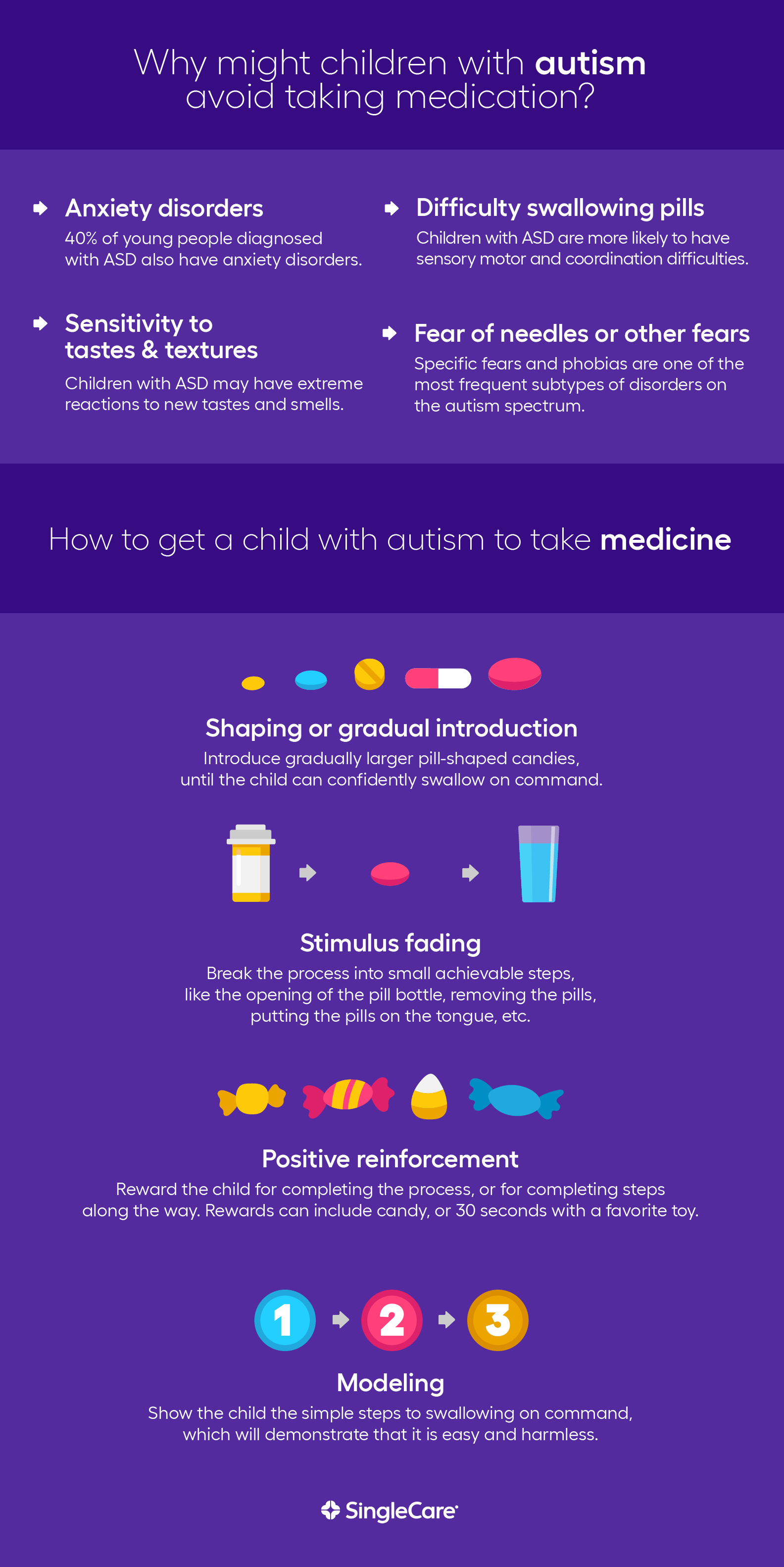
As there are few known drugs that treat core symptoms of autism spectrum disorder, parents of children with ASD may want to consider medication treatment. Currently, there are two FDA-approved medicines that help children and adults with ASD overcome irritability. Both of these medications work by inhibiting the activity of dopamine receptors in the brain, which are responsible for mood, movement, and cognition. While they do have side effects, they can reduce irritability and improve social interaction.
Several of the medications available for children with autism have been developed to address specific side effects of the first. Despite the fact that some of these medications are more effective than others, they also carry a higher risk of side effects. For example, some children with autism may be more prone to weight gain and diabetes. For this reason, parents are closely monitored while on these drugs. For some behavioral challenges, non-medical treatments are the best option. For example, behavioral therapy may help children sleep better, and if that is not effective, anti-seizure and anti-psychiatric medications can be considered.
Many children with autism are prescribed antipsychotic drugs. These drugs are also used to treat various types of anxiety disorders. Older antipsychotics like haloperidol and chlorpromazine are often prescribed to children with ASD. Stimulants are also used, but they are typically used for Attention Deficit Hyperactivity Disorder. Most of these medicines target the cortex and brainstem arousing system. While most of the medications have side effects, they are generally safe and seem to be the best option for children with ASD.
While the most common type of medications for autism are antipsychotics, some of these are also known to have serious side effects. Because of the risk of adverse side effects, doctors often prescribe a second drug to mitigate their side effects. For instance, some antipsychotics cause weight gain and metabolic issues, and benztropine relieves jerky movements. Fortunately, there are a few safer options out there, including natural supplements and complementary therapies.
Fortunately, there are several medications that have been proven effective in treating the symptoms of autism in children. Some of these medications are antianxiety drugs, while others are considered "antipsychotics". Despite the many side effects of these medications, they are generally well-tolerated by parents. Some of them have only minor side effects, while others are safe and effective. If your child has a serious reaction, it is best to seek medical advice immediately.
Many medications for autism are used for a variety of different problems. For instance, antipsychotics are a type of drug that helps the brain function well. It acts on the serotonin receptors and helps control symptoms of hyperactivity. However, if your child does not respond to these drugs, they may have severe side effects. Unlike the drugs used for depression, they do not interfere with the body's functions. The FDA has approved a number of medications that can help treat specific symptoms of autism.
Antipsychotics are drugs approved to treat symptoms of autism in children. Risperdal is an example of an atypical antipsychotic. It has side effects related to drowsiness and extrapyrenia. Tricyclic drugs are another type of antidepressant used for autism. They can help with anxiety symptoms, but the side effects can be serious. As with any medication, medical advice should be sought from a trusted health site before starting any new treatment program https://www.yomeapunto.com.mx/.
Some medications are used to treat autism. These are antidepressants approved to treat some of the symptoms associated with autism. Some of these drugs target the behavior of autistic children and may help them learn and behave in social settings. Most of them have side effects, but it's important to know the risks and benefits of each drug. You may need to try several different medications to find the right one for your child. However, they should never be used to treat autism symptoms.
There are no approved autism drugs that treat the underlying problems. They operate on the periphery of these conditions. This means that they do not actually treat the real problems of autism. This makes it difficult to plan medications with confidence. It is important to remember that there are no FDA-approved drugs to treat all aspects of autism. In addition to prescription drugs, there are also over-the-counter drugs that are designed to treat other conditions.
